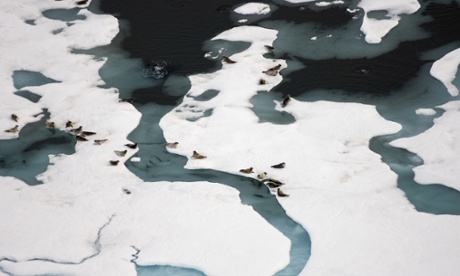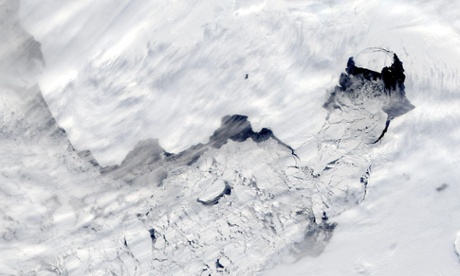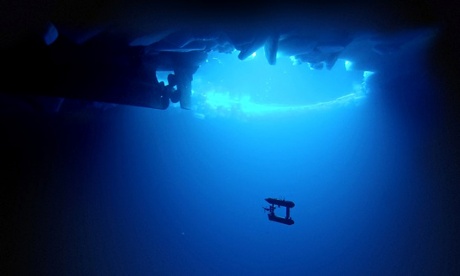Antarctica has likely broken a new record for the lowest annual maximum amount of sea ice around the continent, beating the previous low by a million square kilometres.
The new mark is the latest in a string of records for the continent’s sea ice, as scientists fear global heating could have shifted the region into a new era of disappearing ice with far reaching consequences for the world’s climate and sea levels.
Each September Antarctica’s sea ice reaches its maximum extent. The average between 1981 and 2010 was 18.71m sq km.
But the US National Snow and Ice Data Center (NSIDC) said preliminary analysis suggested the sea ice reached a maximum of 16.96m sq km on 10 September and had fallen away since then.
The 2023 maximum was 1.75m sq km below the long term average and about 1m sq km below the previous record low maximum set in 1986.
Dr Will Hobbs, a sea ice scientist at the University of Tasmania, said that since April the rate of growth in Antarctica’s sea ice had been “very, very slow”.
“This isn’t just a big change from the average, but also from the previous record,” he said. “In May it was pretty obvious we were in for something spectacular.”
He said sea ice losses in the Ross Sea region were likely down to winds that had pushed the ice against the continent, bringing warm air. But weather couldn’t explain why ice was lost around the rest of the continent.
Antarctica’s sea ice goes through an annual cycle reaching its lowest extent each February and its highest levels in September.
Antarctica’s sea ice had been relatively stable until a new record summer low was broken in 2016. Since then, further record lows have been set, including this February that broke the record for the lowest summer minimum.
Scientists are still trying to untangle the reasons for the dramatic run of records, with natural variability and global heating likely combining.
Hobbs said in his view the “scientific barrier” had not yet been crossed to allow scientists to say with confidence the records were down to global heating. But he said the loss of sea ice was consistent with climate change projections.
NSIDC said the losses of sea ice since 2016 were most likely linked to warming of the upper layer of the ocean.
“There is some concern that this may be the beginning of a long-term trend of decline for Antarctic sea ice, since oceans are warming globally, and warm water mixing in the Southern Ocean polar layer could continue,” the centre said in an update.
Thousands of emperor penguins chicks likely died last year after the break-up of usually stable sea ice at four of their colonies.
Dr Ariaan Purich, a climate scientist specialising in Antarctica and the Southern Ocean at Monash University, said the top 300 metres of the Southern Ocean around the continent had been noticeably warmer since 2016.
“But as to why the sea ice has been so much lower than it has ever been on the record, we still don’t have a good grasp on that yet.”
She said the loss of sea ice had far-reaching consequences for the planet. Sea ice helps protect the land-based ice from entering the ocean, which could push up sea level by several metres.
Sea ice also reflects the sun’s energy back out to space. She said with less sea ice, more of the ocean is exposed to the sun’s energy, causing further Southern Ocean warming and further loss of ice.
“Scientists are worried. I’m worried that it looks low sea ice is the future – and it’s here now.”










